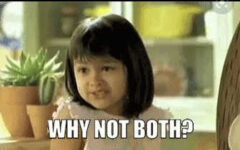If I asked you why you believe, or disbelieve, in God, what would you say?
Would your answer be based on logic and evidence, or would it be based on feelings and experience? Or if both, which would be most important?
Would one type of answer be more reliable than the other?
Logic vs feelings?
Modern thinking tends to value logic and reason over feelings and experience. The analytical over the intuitive. We all use both modes of thinking in different situations, the psychologists tell us. Nevertheless, careful consideration of the facts is generally considered to trump emotional thinking.
Atheists and agnostics tend to be more analytical than religious people. Which, some atheists say, shows that religious belief is unjustified.
But there are three good reasons to think that intuitive thinking is still important in pondering the question of God’s existence.
1. Intuitive thinking is valuable
Analytical thinking is best for working out mathematics problems, and for systematically working through an issue where the facts are known and just have to be sorted and connected. But if the facts are less clear, or if there are many disparate factors to consider, or if we don’t have a lot of time, analytical thinking can be overwhelmed.
For these situations, our brains have evolved “heuristics”, shortcuts or rules of thumb that help us arrive at decisions quickly and reliably, using intuitive thinking. Studies show that in pressure situations this thinking can be more reliable than analytical thinking – for example, in emergencies, more experienced doctors using intuitive thinking came to better decisions more quickly than younger doctors working their way through the issues analytically.
The question of God’s existence is a complex issue. Philosophers have argued over theistic “proofs” for millennia. They’ve formulated rigorous versions of these arguments using precise analytical thinking. But after all that, the question of God’s existence remains neither proven or disproven. Analytical thinking doesn’t give us an answer.
And it’s pretty obvious why. The matter is too complex, the facts slippery to hold onto. Analytical thinking will be helpful, but we’ll definitely need intuitive thinking too.
Does intuitive thinking come first?
Psychologist Jonathan Haidt says we almost always use intuitive thinking for issues of religion, morality, aesthetics and politics. Having reached a viewpoint, we then employ analytical thinking to justify our choice.
We don’t like to hear that. We like to think our beliefs are arrived at rationally. And maybe they are. But maybe not as often as we’d like to think.
Even in science, I have read that many researchers arrive at new ideas intuitively, and then they use the analytical approach of the scientific method to test their intuition.
So intuitive, more personal thinking isn’t going away when we consider the question of God.
2. Do we want to bother?
There are so many things to think about in life. By the time we get through the minutiae of life, who has time to ponder the mysteries of life as well as keep abreast of politics and important social issues? We have to think an issue is important or worthwhile before we can invest time into thinking about it.
Some of us find the idea of God so important or attractive that we will give time to working out what we think about him/her. But others of us think it simply isn’t important enough to spend time delving into.
I was thinking about this recently, and I started thinking of reasons why we might want God to exist.
- What is human? Without God, it seems we humans are no more than smart animals, and our lives lack any objective purpose and meaning. We may not feel comfortable with that. Most of us have a longing for something more. We sense the cosmic despair, and know we cannot live with it. We must find deeper meaning and purpose.
- The things that make us human. We are conscious of ourselves as separate beings, we think, we make choices and we are motivated by good and evil. We experience guilt and need forgiveness. We would be very uncomfortable without these human characteristics. Yet without God, it is hard to see how morality, choice and the rest are any more than illusions.
- In touch with the transcendent. Some people, quite a lot actually, feel they have had some sort of an overwhelming experience of a transcendent God. Perhaps they were imagining it, though it seemed too real for that. But it was life changing, and so much of their subsequent life would be dashed if the experience was unreal.
So there are good life-enhancing reason why belief in God may make an enormous difference to us. Investigating the question is certainly a worthwhile endeavour.
I have looked at this further, including what psychologists say, in Why would you want to believe in God?
3. A changing scene
I started this website more than 15 years ago. At that time, I was also a member of several online forums where the (non)existence of God was discussed and sometimes argued over quite vehemently. I also read and commented on a bunch of blogs where religious and philosophical questions were discussed.
Atheism vs theism was in the air. Richard Dawkins and the other so-called “new atheists” were influential through their books and websites. William Lane Craig regularly debated atheists.
It’s not like that any more. Most of the blogs and forums I used to read and comment on have disappeared. It’s a long time since I heard Richard Dawkins’ name. Atheists and theists seem to have better things to do these days than argue with each other. (We can be thankful for that!)
People seem more interested in living than arguing. They want to know if something is going to make a practical difference to them before they think about it seriously.
Feelings and experience matter as much as logic and evidence, maybe more. You may not think that’s a step forward, but it seems to be the case anyway.
Let’s use our imagination and intuition
I tend to favour analytical thinking over intuitive – I think that’s just the way my brain is made. But my analytical thinking leads me to see that intuitive thinking is also valuable.

Why not use both?
Maybe we should value our intuitions about being human. Our feelings about meaning, purpose, significance, truth and beauty may give us true insights.
Perhaps at least we should look at these questions again. This website is designed to help you do that.
Read more on arguments for God’s existence
- Why believe in God? A short summary of evidential reasons why God’s existence makes sense.
- Truth and evidence. what would constitute good evidence for God, and how can we stay open to whatever the truth may be?
- Philosophical arguments for the existence of God.
- What is the meaning of life? If it’s not religion, what might it be?
- Can life have meaning without God? Five views
- The human race. Our knowledge from the inside on what it is like to be human can give us clues about God.
Photo by Hannah Bickmore from Pexels





Another good post this month. I too in the past have found the intuitive and analytical parts of my mind often clashing in every day life situations as well as deeper conundrums. I have found embracing either an entirely analytical or intuitive approach to life fundamentally unfeasible, the universe we find ourselves in seems to punish both approaches (but now that I think about it that probably won’t suprise anyone). I suppose it comes down to trying to find the balance between the two, but as a species I suspect we are doomed to debate that philosophical, possibly forever.
As to God, my intuition says “yes, and I want that to be the case too” but at the same time also says “but I’m afraid I’m wrong, and what if I’m wrong and everything is meaningless?”. My analytical self says simply “I don’t know and definitely knowing the answer is humanly impossible, at least in this life”.
Just my thoughts in regards to yours.
Be well Eric!
Hi Aaron, good to hear from you again. I think you raise an interesting question that has long intrigued me when you outline your dilemma of wanting and doubting at the same time. I used to spend time on a couple of blogs and forums run by atheists (when blogs & forums were more of a thing), and had some interesting conversations on these matters.
There will always be those on either side who are dogmatically sure they are right and those who disagree are either “rebelling against God” or “delusional”. But there are many people in the middle, as you describe. Some of them I found similar to me in much of their thinking, yet they fell down on one side of the line of belief and I fell on the other. I used to wonder why.
If there is no God, then that just happens to be the way it is. Some questions are clear (why do apples fall to the ground?) but others are not obvious (ethics, politics, God, etc) and people will naturally balance the evidence differently.
If there is a God, as say christians believe, then it must be that he leaves the evidence finely balanced so we each can make an honest choice, based not only on evidence but also on what we think ought to be true and we want to be true.
As human beings, I think we find it hard to stay on the balance for too long, and eventually we slip over one side of the line or the other. Sometimes our minds stay uncertain but our lives and habits show we have moved one way or another. Many agnostics, I think, end up living as if God isn’t there, and that’s actually their choice. But a friend of mine, raised an atheist and committed to it as a young adult, found herself experiencing what she felt was God, and finally announced, to her own surprise as much as anyone else’s, “I realise I am a christian.” Her behaviour or subconscious belief had arrived there ahead of her intellectual commitment.
Does any of that resonate with you?
Yes, I would say it does. Overall, I would say I “feel” like there is a god. But I just don’t want to jump to things, I want to learn the arguments for and against. Overall right now, I would say I learn much closer to a uncertain but straightforward theism (without the involvement of organised religion). I wasn’t raised in a religious family, but it is definitely a spiritual family. My mother and late great grandmother is religious, my dad isn’t but he definitely has a spiritual side. The only full atheist in my family is my grandfather although he’s never been passionate about it, it’s accepting of pretty much everyone. My sister is more or less like me, questioning and hoping there is a higher power.
I’m still learning. I have come to several conclusions though, such as the existence of a creator/sustainer (again without the involvement of organised religion) and the physical sciences are not in conflict. As someone who is trained in forensic investigation, my understanding is that science does not and cannot concern itself with “whys” only “hows”. We can explain how we are here (Abiogenesis, evolution, reproductive biology), but never “why”. So I do not view spiritual and religious belief as inherently irrational. If fact I find it quite telling that several neuroscientific studies have concluded human beings are inherently religious. But for the time being I’m not committing myself to a position, there is simply to much left to learn. I accept that I will never know for definite in this life, but strangely enough that hasn’t made me give up on learning everything I can on these issues. I’m finding panentheism, and the works of David Bentley hurt particularly convincing.
As to religion itself, that is still a big one I have yet to draw a conclusion on. I am deeply sceptical toward religious exclusivity. If there is a higher power, it makes more sense to me that all religions would be based on some universal truth. One being right and the rest being wrong is not something I feel I can take seriously. I have also decided there is no hell as it is traditionally depicted (DBH is a Christian universialist, and I’ve noticed a lot of Christian theologians are arguing against the existence of hell) . From my studies it seems it’s based on mistranslations, and is a spill over from Greek mythology. I fully accept Christ was a real flesh and blood person, I’m a big history buff and I’m in no doubt he existented as much as me and you. But what his true nature was and is, I have no conclusions as of yet (I definitely like his teachings). I have deep respect for Buddhism, but can pretend I find that lifestyle attractive. I have yet to properly research Judaism and Islam, but I respect the followers of both and am lucky enough to have friends in both traditions.
So that’s my current position, a “agnostic bordering on simple theist”. I’m trying to take my time in considering these things, I don’t want to rush.
Thanks for explaining all that Aaron. I certainly respect your intention and your logic. I too was raised in a non-religious (but respectful of religion) family, but we were sent to Sunday School as children because it was more or less the right thing to do.
I feel that the likelihood of a creator is pretty high – a universe with the right parameters and laws to support life just arising out of nothing and for no reason seems quite implausible to me. So for me, the key question is what is the nature of that creator?
My logic goes that (1) such a creator presumably had some reason to create, (2) if it is all just some giant experiment, then it doesn’t really matter what I believe, but (3) if that creator cares about us like a parent or pet owner, then they would have done something to reveal themselves. So that logic leads me to either a moral God revealed through conscience and experience, or a revelatory God.
I think Jesus is unique among possible revelators for many reasons, and like you I like his teachings, so I feel comfortable concluding he is the key to the puzzle. But I also agree with you that the Buddha seems to have been an admirable person. I agree too that I don’t see christianity as right and everyone else wrong – it is more a matter of I think christianity contains more truth than others because of Jesus’ status as God’s revelation. I agree too with you that the conventional hell is unsustainable, Biblically, morally and in every other way.
It is very interesting to hear your thoughts at this stage, and I hope you keep commenting on your journey. Thanks again.